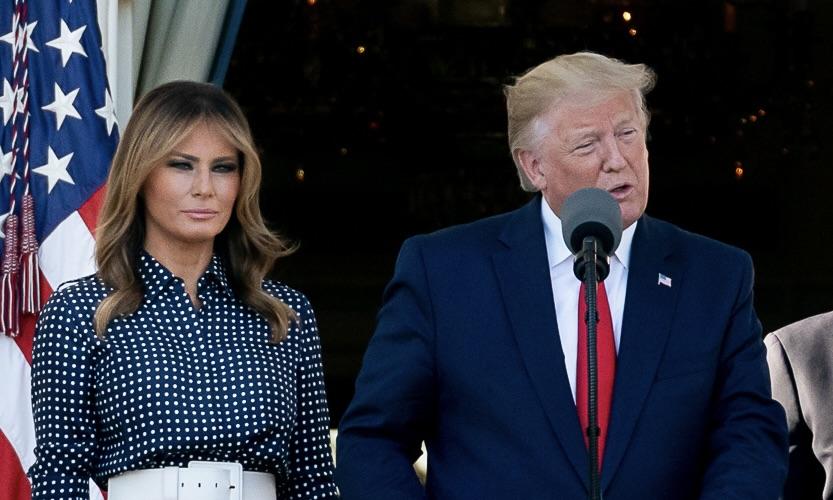As housing affordability reaches a critical tipping point in urban centers across the United States, President Donald Trump has unveiled an ambitious set of initiatives aimed at addressing the crisis in 2025. The proposed plans focus on increasing housing supply, easing zoning restrictions, and providing targeted incentives for developers. However, critics question whether these measures will genuinely benefit low-income families or primarily serve developers’ interests.
Easing Zoning Laws to Expand Housing Supply
A key component of Trump’s affordable housing strategy involves easing zoning laws, which have long been criticized for stalling urban development. The administration aims to work with local governments to remove restrictive zoning regulations that often hinder multi-family housing projects in urban areas. Trump’s team has labeled this initiative a “necessary intervention” to increase housing density and provide more affordable options for working-class Americans.
This zoning reform would prioritize streamlining the approval process for high-density projects and incentivizing municipalities to embrace mixed-use developments. By doing so, the administration hopes to foster a wave of new construction to combat the chronic shortage of affordable housing units in cities like New York, Los Angeles, and Chicago.
Critics, however, argue that this approach may lead to gentrification and displacement of long-time residents. Housing advocate @UrbanRights tweeted, “Easing zoning sounds great on paper, but will Trump’s plan safeguard against displacing vulnerable communities? Doubtful.”
Developer Incentives and Public-Private Partnerships
Another focal point of Trump’s plan is incentivizing developers to prioritize affordable housing projects through tax credits and public-private partnerships. The administration has proposed expanding the Low-Income Housing Tax Credit (LIHTC) program, which allows developers to offset the costs of building affordable units. Trump also plans to introduce a new federal grant system to support state and local affordable housing initiatives.
Supporters believe these incentives could attract private investment and drive down housing costs. Real estate expert @BuildSmart tweeted, “Finally, a housing plan that gets the private sector involved. This could be a real game-changer!” However, detractors worry that these incentives may primarily benefit large developers rather than addressing systemic issues in housing affordability. @AffordableNow commented, “Tax credits for developers? Sounds like a handout to big business, not a solution for struggling renters.”
Additionally, Trump has pledged to allocate more federal funding to the Department of Housing and Urban Development (HUD) to modernize existing public housing units and expand rental assistance programs. This aspect of the plan has received praise from some community leaders, though its long-term feasibility remains uncertain.
Public Reactions: Divided Opinions
The announcement of Trump’s housing initiatives has sparked a wave of reactions on social media. User @CityWatchdog wrote, “Trump’s zoning reforms are long overdue. Urban areas need higher density housing to meet demand.” Another commenter, @HousingHopes, countered, “Loosening zoning laws is risky—where’s the plan to protect low-income communities from being priced out?”
Meanwhile, @PolicyGuru tweeted, “Developer tax breaks are a smart move, but we need guarantees for affordable housing quotas.” Another critic, @UrbanReality, remarked, “Sounds like a classic Trump plan: big promises, but who actually benefits?”



 Failure of US-Iran talks was all-too predictable – but Trump could still have stuck with diplomacy over strikes
Failure of US-Iran talks was all-too predictable – but Trump could still have stuck with diplomacy over strikes  Trump Warns Iran as Gulf Conflict Disrupts Oil Markets and Global Trade
Trump Warns Iran as Gulf Conflict Disrupts Oil Markets and Global Trade  Marco Rubio to Brief Congress After U.S.-Israeli Strikes on Iran
Marco Rubio to Brief Congress After U.S.-Israeli Strikes on Iran  Iran Supreme Leader Ayatollah Ali Khamenei Killed in Israeli, U.S. Strikes: Reuters
Iran Supreme Leader Ayatollah Ali Khamenei Killed in Israeli, U.S. Strikes: Reuters  AI is already creeping into election campaigns. NZ’s rules aren’t ready
AI is already creeping into election campaigns. NZ’s rules aren’t ready  Middle East Conflict Escalates After Khamenei’s Death as U.S., Israel and Iran Exchange Strikes
Middle East Conflict Escalates After Khamenei’s Death as U.S., Israel and Iran Exchange Strikes  Israel Declares State of Emergency as Iran Launches Missile Attacks
Israel Declares State of Emergency as Iran Launches Missile Attacks  Argentina Tax Reform 2026: President Javier Milei Pushes Lower Taxes and Structural Changes
Argentina Tax Reform 2026: President Javier Milei Pushes Lower Taxes and Structural Changes  UK Accepts U.S. Request to Use British Bases for Defensive Strikes on Iranian Missiles
UK Accepts U.S. Request to Use British Bases for Defensive Strikes on Iranian Missiles  U.S.-Israel Strike on Iran Escalates Middle East Conflict, Trump Claims Khamenei Killed
U.S.-Israel Strike on Iran Escalates Middle East Conflict, Trump Claims Khamenei Killed  Netanyahu Suggests Iran’s Supreme Leader Khamenei May Have Been Killed in Israeli-U.S. Strikes
Netanyahu Suggests Iran’s Supreme Leader Khamenei May Have Been Killed in Israeli-U.S. Strikes  Why did Iran bomb Dubai? A Middle East expert explains the regional alliances at play
Why did Iran bomb Dubai? A Middle East expert explains the regional alliances at play  EU Urges Maximum Restraint in Iran Conflict Amid Fears of Regional Escalation and Oil Supply Disruption
EU Urges Maximum Restraint in Iran Conflict Amid Fears of Regional Escalation and Oil Supply Disruption  Suspected Drone Strike Hits RAF Akrotiri Base in Cyprus, Causing Limited Damage
Suspected Drone Strike Hits RAF Akrotiri Base in Cyprus, Causing Limited Damage  Macron Urges Emergency UN Security Council Meeting as US-Israel Strikes on Iran Escalate Middle East Tensions
Macron Urges Emergency UN Security Council Meeting as US-Israel Strikes on Iran Escalate Middle East Tensions  Does international law still matter? The strike on the girls’ school in Iran shows why we need it
Does international law still matter? The strike on the girls’ school in Iran shows why we need it 
































